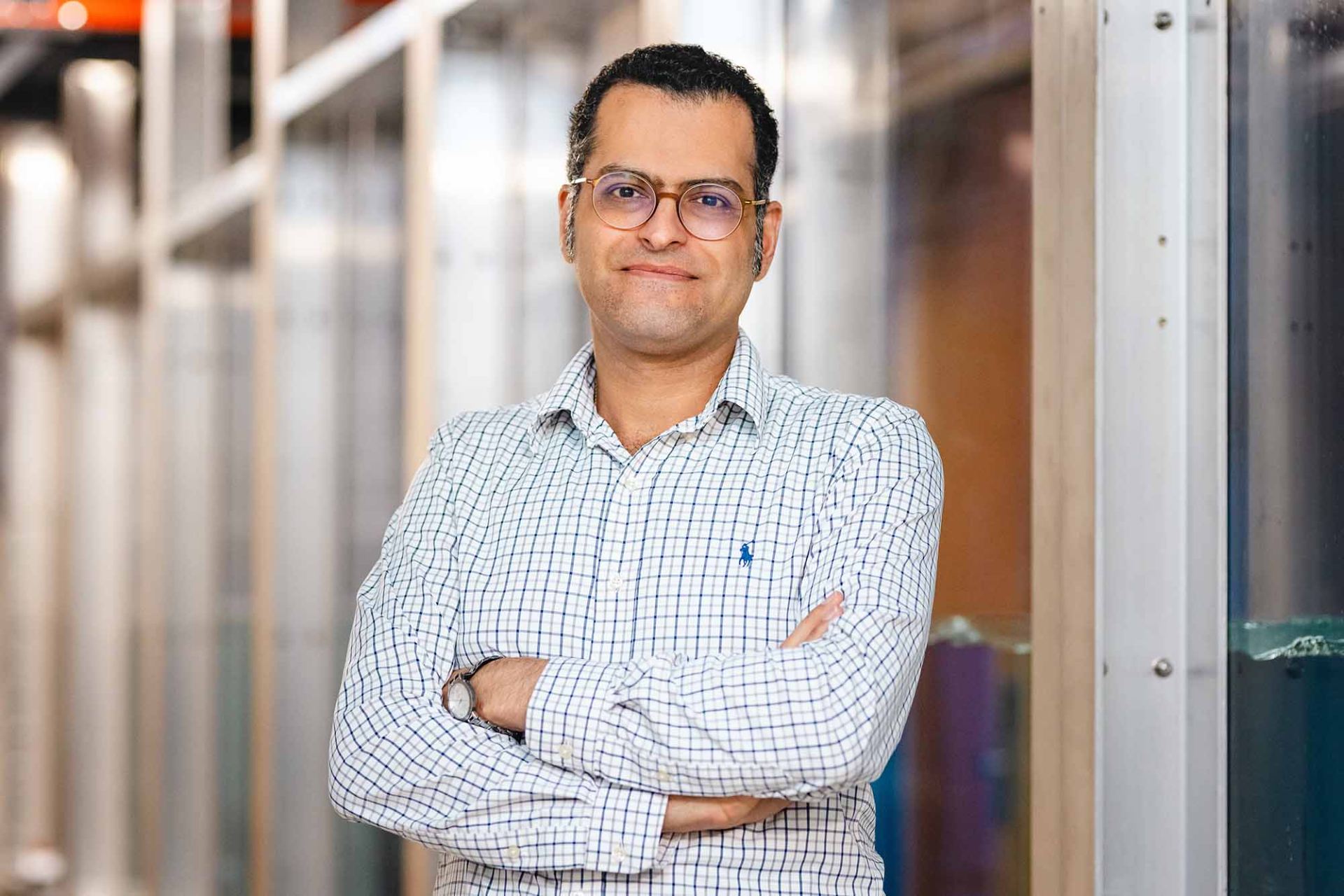Dr. Kianoosh Yousefi is developing a model based on machine learning to improve hurricane forecasting. Yousefi’s work is supported by an Office of Naval Research 2025 Young Investigator Program award.
Tiny droplets of sea spray generated at the ocean surface can affect the intensity and evolution of hurricanes and other tropical storms.
Their impact, however, is not well understood because of the difficulty of measuring spray concentration and the size and velocity of individual droplets under high wind conditions.
At The University of Texas at Dallas, researchers are studying sea spray, particularly spume, or foam, droplets, in the lab to develop a model based on machine learning to improve hurricane forecasting. The model incorporates the effects of the spray generation function, which quantifies the rate at which droplets form.
Dr. Kianoosh Yousefi, assistant professor of mechanical engineering in the Erik Jonsson School of Engineering and Computer Science, received an Office of Naval Research 2025 Young Investigator Program (YIP) award for the project. The program supports academic, tenure-track scientists and engineers who have received their doctorate or equivalent degree in the past seven years and who show exceptional promise for doing creative research. Yousefi’s award provides up to $742,345 over three years.
“Dr. Yousefi’s YIP award will enable him to make important advances in understanding sea spray dynamics and could meaningfully improve weather forecasting models in densely populated coastal regions,” said Dr. Edward White, professor and department head of mechanical engineering and Jonsson School Chair. “This is an exceptionally challenging area for experimental measurements, and his approach to this, combined with high-fidelity numerical simulations, exemplifies the cutting-edge science he and the rest of mechanical engineering continue to pioneer in solving complex challenges.”
The goal of the research is to provide more accurate tropical storm forecasting without the need for expensive, difficult-to-access experimental methods. Yousefi and his team of researchers are using simulations and lab experiments involving a new wind-wave research tunnel. The research tunnel, which has a 40-foot-long water tank, can generate breaking waves so that the researchers can capture high-resolution data on spume droplets, which are as small as 20 micrometers, the width of a strand of human hair.
The researchers use high-speed shadowgraph imaging, a technique involving a high-speed camera to record the motion, size, and shape of objects, such as the size and velocity of spume droplets.
“We are working to capture detailed information that will help us estimate the speed and momentum of spume droplets so we can better understand how sea spray is transported under different wind-wave conditions.”
Dr. Kianoosh Yousefi, assistant professor of mechanical engineering in the Erik Jonsson School of Engineering and Computer Science
“We are working to capture detailed information that will help us estimate the speed and momentum of spume droplets so we can better understand how sea spray is transported under different wind-wave conditions,” Yousefi said. “I am honored and very excited to receive support through the YIP award to advance this research.”
The resulting machine learning model will consider wave profile, wave slope, wind speed and other relevant parameters to improve the prediction of spray generation and its effects on storm intensity.
Yousefi, who joined UTD in 2023, is the principal investigator for the Flow Dynamics and Turbulence Laboratory, which focuses on the study of turbulent air-sea interaction processes, including surface waves and the accompanying generation of turbulence, spray, bubbles, airflow separation and breaking waves.
The new award recognizes Yousefi’s contribution to the fields of physical oceanography and turbulent air-sea interactions and builds on his research supported by a previous National Science Foundation award to study air-sea interactions in collaboration with researchers at Columbia University.
